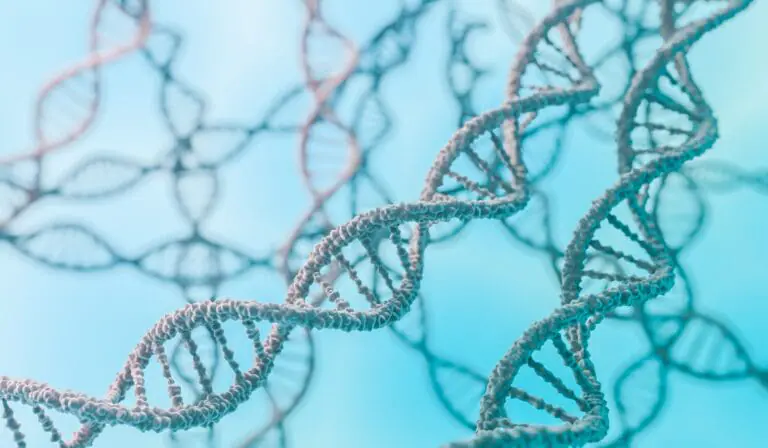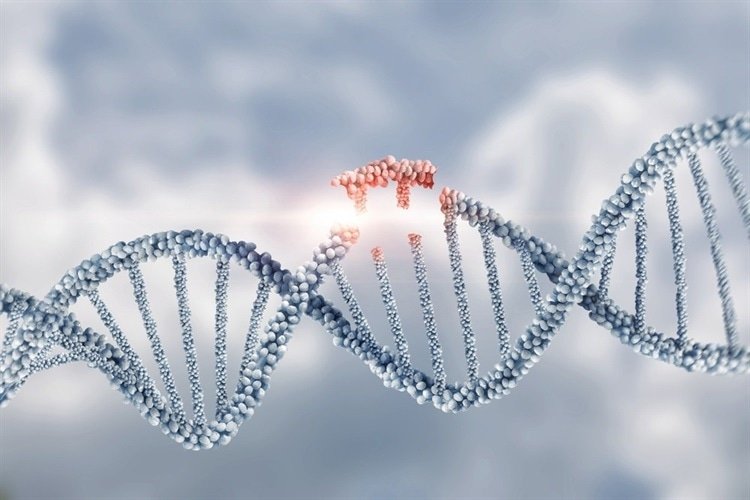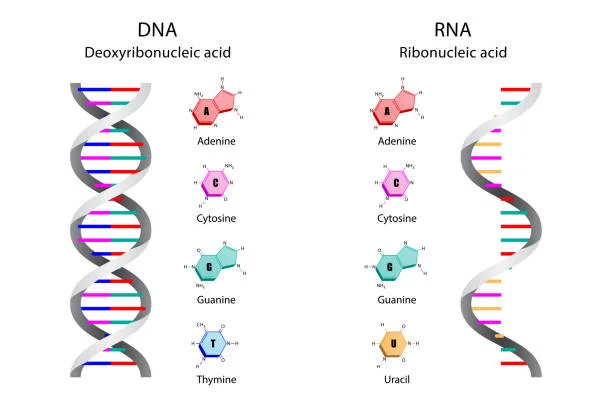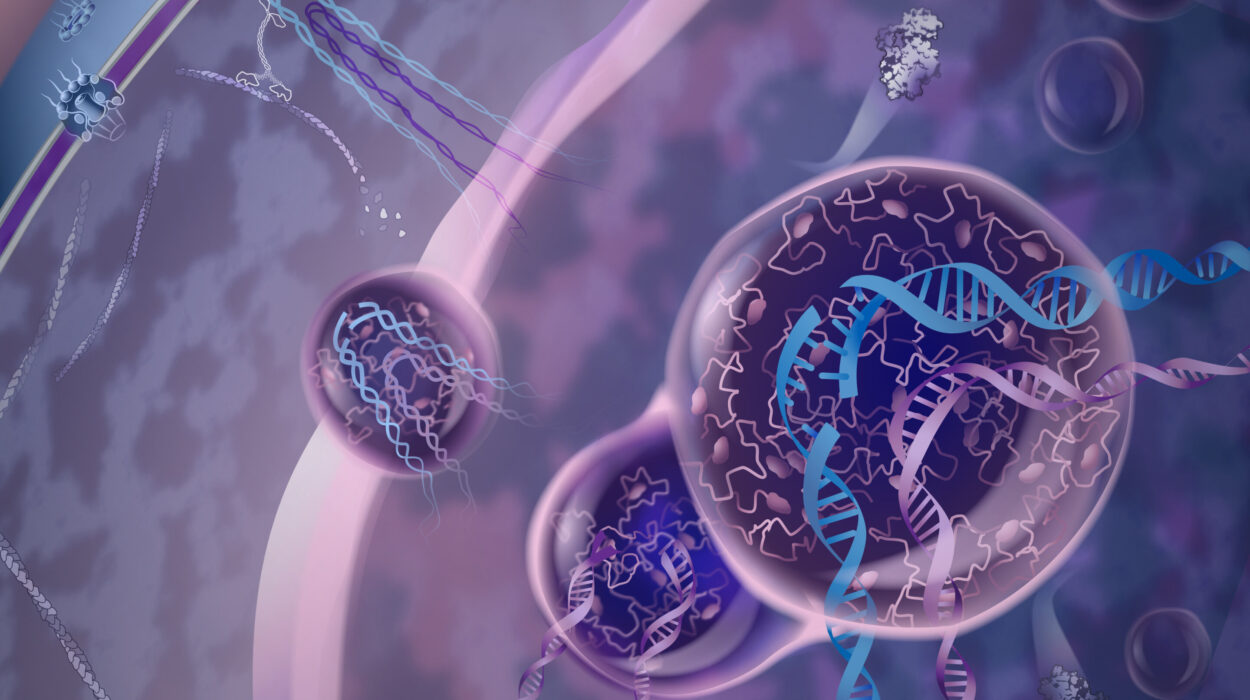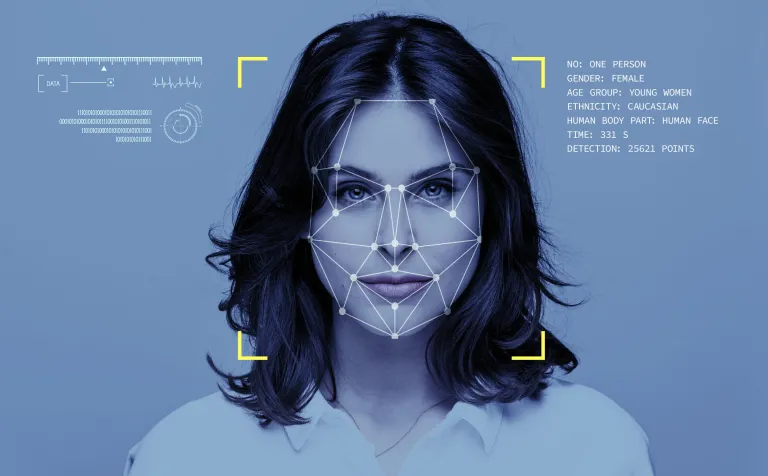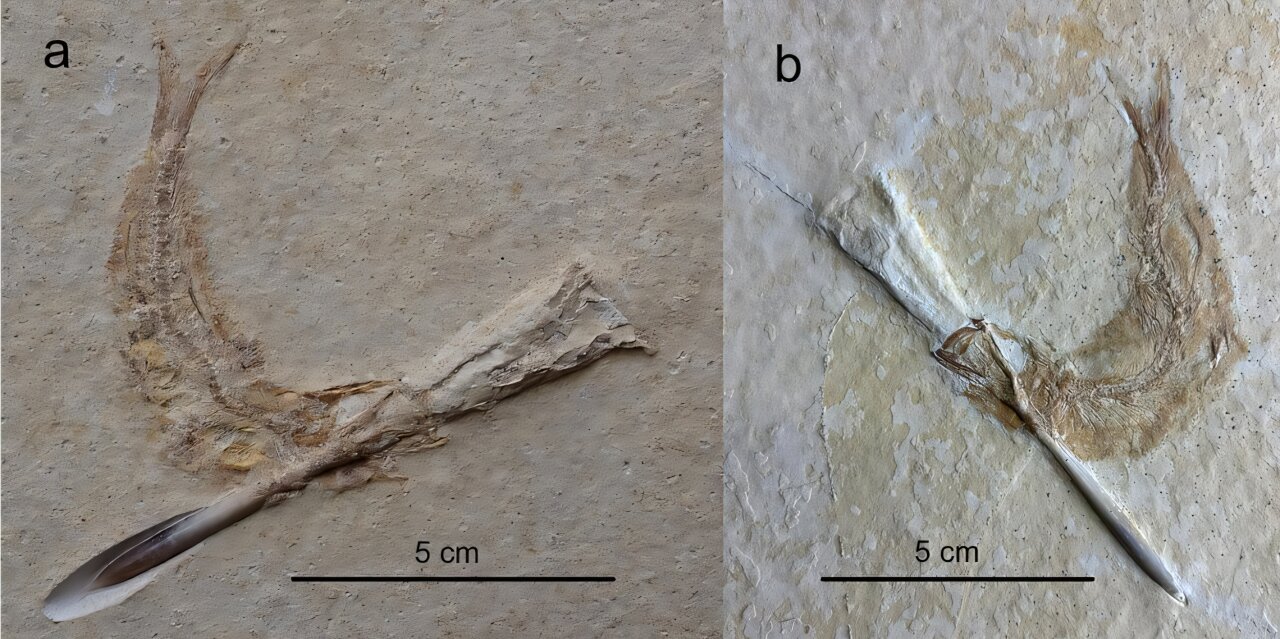You are a walking archive of secrets. Deep within the trillions of cells that make up your body lies a hidden library—the complete instruction manual for building and running a human being. This is your DNA: a molecule so small it can’t be seen with the naked eye, yet powerful enough to dictate everything from the color of your eyes to the shape of your future.
Deoxyribonucleic acid—DNA—is the language of life. It’s made up of just four chemical letters (A, T, C, and G), and yet it writes the story of every organ, emotion, strength, and weakness you possess. If all the DNA in your body were stretched out end to end, it would reach the sun and back—hundreds of times. But beyond its biological importance, your DNA holds secrets, riddles, and revelations about who you are and where you came from.
These secrets aren’t fantasy. They’re not locked away in some mysterious realm. They’re accessible to scientists today—and increasingly to curious individuals like you. Through genetic testing, genome sequencing, and evolutionary biology, we are learning how to read this astonishing code.
Here are ten incredible truths your DNA might be hiding—secrets about your ancestry, your personality, your health, and even your destiny.
1. Your DNA Remembers Where You Came From
Beneath your skin lies an epic saga. Your DNA is a time machine, stretching back hundreds of thousands of years. It remembers migrations, famines, wars, and love stories—every generation that survived to pass it down to you.
At the root of this story is the fact that every person alive today shares ancestry with the entire human family. Genetic studies reveal that all modern humans descend from a small group of people who lived in Africa around 200,000 years ago. This is the foundation of the “Out of Africa” theory—a cornerstone of human evolution supported by genetic markers in mitochondrial DNA (inherited from mothers) and Y chromosomes (passed from fathers to sons).
As your ancestors migrated across continents, they picked up and passed on tiny genetic variations called single nucleotide polymorphisms (SNPs). These variations differ slightly across populations and can help trace your lineage with astounding precision. DNA testing companies like 23andMe or AncestryDNA use these SNPs to map out your ancestral origins—sometimes down to specific regions, tribes, or even ancient populations like Neanderthals or Denisovans.
That’s right: your DNA may hold fragments of extinct human species. If you’re of European or Asian descent, chances are that between 1–4% of your genome comes from Neanderthals—our ancient cousins who interbred with early modern humans tens of thousands of years ago.
Your DNA isn’t just a record of biological instructions—it’s a diary of deep time, written in the language of survival.
2. It Can Predict Your Risk for Hundreds of Diseases
Imagine being able to see the future—not with a crystal ball, but with a cheek swab. Your DNA contains clues about your predisposition to hundreds of diseases, from diabetes to Alzheimer’s to rare cancers.
This ability lies in what geneticists call polygenic risk scores. Unlike single-gene disorders like cystic fibrosis or Huntington’s disease (which are caused by mutations in one gene), most common diseases result from the cumulative effect of many genes, each contributing a small amount to your risk. Combine that with lifestyle and environment, and you get the full picture.
Thanks to massive genetic databases—like the UK Biobank—scientists have now mapped thousands of genetic variants associated with diseases. For example:
- BRCA1 and BRCA2 mutations dramatically increase the risk of breast and ovarian cancer.
- APOE-ε4, a version of the APOE gene, is linked to a higher likelihood of developing Alzheimer’s disease.
- Certain gene combinations raise your chance of heart disease, type 2 diabetes, or stroke.
The science isn’t perfect. DNA isn’t destiny. But your genetic blueprint is a powerful early warning system. For some, it can be the difference between proactive health monitoring and a missed diagnosis.
One day, personalized medicine may tailor treatments to your exact genome. Already, pharmacogenomics—how your genes affect your response to drugs—is helping doctors prescribe the right medication at the right dose.
You are not just a patient. You are a genetic landscape.
3. Your DNA Holds the Blueprint for Your Personality
Are you shy or outgoing? Cautious or adventurous? Driven or easygoing?
These traits aren’t shaped by DNA alone, but your genes do nudge you in particular directions—often in subtle but measurable ways.
Large-scale studies have found that traits like extroversion, neuroticism, openness to experience, and even risk-taking behavior are moderately heritable. That means genes contribute, often alongside early childhood experiences and environment.
For example, variations in the DRD4 gene, involved in dopamine regulation, are associated with novelty-seeking and impulsivity. Other genes involved in serotonin pathways have been linked to anxiety and mood regulation.
Some people even have genetic variants that influence their response to stress or trauma. This suggests that resilience and sensitivity may, in part, be written into our DNA.
Still, personality is not fixed. Your experiences, upbringing, and culture play massive roles. But the genetic foundation is real—a quiet architecture shaping your emotional world.
You are a mosaic of DNA and experience, fate and freedom.
4. It Knows How You’ll Age
Your DNA not only tells the story of your birth—it hints at how you will age, how long you might live, and even how fast your cells are decaying right now.
One of the most fascinating discoveries in modern biology is the role of telomeres—protective caps on the ends of your chromosomes. Think of them like the plastic tips on shoelaces. Every time a cell divides, these telomeres get a little shorter. Eventually, they become too short to protect the DNA, and the cell dies or becomes dysfunctional.
Shorter telomeres are associated with accelerated aging, disease, and early death. And while lifestyle plays a huge role (stress, smoking, poor diet), your starting telomere length is partially inherited.
Another aging clock is embedded in your epigenome—the layer of chemical tags that sits on top of your DNA and regulates gene activity. Some scientists now believe they can measure your “epigenetic age,” which may be more accurate than your chronological age.
If your DNA is the script, your epigenetics is the director, deciding which scenes play and which are cut. The amazing part? Epigenetics can be changed. Diet, exercise, sleep, and stress all influence your epigenetic aging.
So while your DNA whispers how you might age, your choices decide how loudly it speaks.
5. Your Taste, Smell, and Food Cravings Are Genetically Wired
Ever wonder why cilantro tastes like soap to some people? Or why some people love bitter coffee, while others gag at the first sip?
Blame—or thank—your DNA.
Your sense of taste and smell is influenced by dozens of genes. A famous example is the OR6A2 gene, linked to detecting aldehydes—the compounds that give cilantro its “soapy” flavor. People with a certain variant of this gene experience cilantro differently.
Bitterness sensitivity also has a genetic component. Some people have variations in the TAS2R38 gene that make them “super tasters.” These individuals often avoid broccoli, kale, and other bitter greens—not because they’re picky, but because they literally taste more intense.
Even your love of sweets, fat, or spicy food may have genetic underpinnings. Certain gene variants affect how your body metabolizes sugar or responds to the burn of chili peppers. One study found that people with a specific FTO gene variant—linked to obesity—also reported stronger cravings for high-fat foods.
Your food preferences are not just habits—they’re partially hardwired sensory experiences filtered through your DNA.
6. Your DNA Can Reveal Mental Health Vulnerabilities
The relationship between genes and the mind is one of science’s deepest frontiers. But the evidence is clear: mental health is not just psychological—it’s biological.
Genes play a significant role in conditions like:
- Depression
- Schizophrenia
- Bipolar disorder
- Autism
- ADHD
In fact, schizophrenia is among the most heritable of all psychiatric disorders, with estimates of 80% genetic influence. Scientists have identified hundreds of genetic variants associated with small increases in risk.
Importantly, no single gene “causes” a mental illness. These are complex traits involving many genes interacting with environment—including early life stress, trauma, substance use, and social context.
However, understanding your genetic risk can inform early interventions. Some day, mental health treatment may be customized by genome, predicting which medications work best or which therapies are most effective for your unique brain chemistry.
Your mind is not separate from your biology. It is its most intricate expression.
7. Your DNA Can Say How You’ll Respond to Exercise and Sleep
We all know people who can run for miles and never tire—and others who struggle with a single lap. Some sleep like rocks, others toss and turn. These patterns are not just lifestyle quirks. They’re often etched into your DNA.
For example:
- The ACTN3 gene affects muscle fiber composition. A common variant is associated with better sprint performance; others favor endurance.
- Genes like PER3 and CLOCK influence your circadian rhythm—your body’s internal clock. These affect whether you’re a night owl or a morning lark.
- Sleep disorders like narcolepsy and restless leg syndrome also have strong genetic components.
- Some people naturally produce more melatonin, the hormone that regulates sleep cycles. Others have receptors that make them more sensitive—or resistant—to caffeine.
Even how your body recovers from workouts, builds muscle, or stores fat is partially determined by your genes.
Knowing this can help you optimize fitness, sleep, and energy. You might never become an Olympic sprinter—but your DNA can help you train smarter, not just harder.
8. It Carries Ancient Battles With Disease
Your immune system is a battlefield. And the weapons it uses today were forged in wars fought millennia ago.
Your DNA contains remnants of past plagues and pandemics. For example, genes that helped your ancestors survive tuberculosis or smallpox might now influence your risk of autoimmune disease. The HLA gene complex, which helps recognize invaders, varies widely between individuals and is shaped by evolutionary pressures.
Intriguingly, some immune-related genes were inherited from Neanderthals, including variants that affect response to viruses like influenza and even COVID-19. While some of these genes offer protection, others may increase inflammation.
Your immune responses—even your allergies—are echoes of ancient evolutionary strategies. Your genome is an archive of survival.
9. Your DNA Can Uncover Long-Lost Relatives
Genetic testing has become a modern-day treasure map for discovering family. With a DNA test, you might find cousins you never knew existed, or even solve decades-old adoption mysteries.
This is possible because companies like AncestryDNA and 23andMe maintain massive databases of users’ genetic profiles. When you test, your genome is compared against millions of others. Shared segments of DNA indicate a shared ancestor—and sometimes even exact relationships.
These DNA reunions have changed lives. Siblings separated at birth have found each other. Children have discovered biological parents. Entire family trees have been reshaped.
It’s a reminder that your genome is not just about you. It’s a network—a biological link to the vast, complex tapestry of humanity.
10. Your DNA Isn’t Entirely Human
This might be the most shocking secret of all: your DNA isn’t purely human.
About 8% of your genome comes from ancient viruses that infected our ancestors and inserted their genetic material into our own. These endogenous retroviruses (ERVs) are mostly dormant, but some still affect gene expression.
You also carry genes shaped by horizontal gene transfer, an exchange of DNA between species. For instance, genetic material from bacteria and viruses has helped shape our immune system, fertility, and even brain development.
You are not a closed system. You are a genetic mosaic of life on Earth—past and present.
The DNA Future
The story of DNA is still being written. We’ve sequenced the human genome—but we haven’t decoded all its mysteries. Vast stretches of “junk DNA” may hold hidden functions. Epigenetic patterns may unlock the secrets of behavior and aging. And gene editing tools like CRISPR are just beginning to change how we treat disease—and perhaps one day, how we design ourselves.
Your DNA is a map, but not a sentence. It tells you where you came from, what’s possible, and what’s likely. But the choices you make—what you eat, how you live, who you love—can amplify or quiet those genetic whispers.
So yes, your DNA holds secrets. But you are the author of the story it helps tell.
